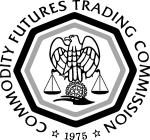
CFTC Whistleblower Alert: Be on the Lookout for Violations of the Bank Secrecy Act, Including Failures in AML and SAR Filing Programs
The Whistleblower Office of the Commodity Futures Trading Commission (CFTC) is issuing this alert to inform members of the public about how they may make themselves eligible for both financial awards and certain protections while helping stop those who violate the Commodity Exchange Act by failing to comply with the Bank Secrecy Act (BSA) or related regulations.
What do the BSA and associated regulations require?
Under Financial Crimes Enforcement Network (FinCEN) regulations pertaining to the BSA, Futures Commission Merchants (FCMs) and Introducing Brokers (IBs), whether registered or required to be registered, must comply with various BSA requirements, including, among other things: (1) implementing and maintaining a written anti‐money laundering (AML) program approved by senior management; (2) implementing a written customer identification program (CIP); (3) filing suspicious activity reports (SARs) under certain circumstances; and (4) filing currency transaction reports (CTR).
What types of misconduct should you be on the lookout for?
The CFTC has brought charges under 17 C.F.R. § 166.3 against FCMs and IBs that fail to comply with BSA requirements. Conduct like that in the 1Pool Ltd., In re Morgan Stanley Smith Barney, and In re Rosenthal Collins Group cases is always of concern to the CFTC. Other concerns include:
- Improper supervision and records violations
- Failure to diligently supervise officers’, employees’, and agents’ opening and handling of accounts
- Failure to protect customers and the markets from fraud and corruption
- Improper enforcement of trading limits assigned by regulators
- Inadequate construction of a customer identification program as part of the firm’s compliance program
- Failure to file suspicious activity reports
What can you do if you suspect misconduct?
If you see something suspicious, you can
- Complete a Form TCR (Tip, Complaint, Referral) correctly and as completely as possible
- Provide details that are specific, credible, and timely
- Include as much information about the violation as possible – e.g., improper supervision, inadequate policies, etc.
- Attach supporting materials to your Form TCR, as long as they are not protected by the attorney‐client privilege or not inconsistent with the requirements of SAR confidentiality
- Supplement your Form TCR filing with any additional information via mail, fax, or email
Note that the Whistleblower Rules define a whistleblower as one or more individuals. A company or another entity cannot meet the definition, but a company “insider” (like an employee or trader), a victim of fraud, or other market participants who observe misconduct may also qualify as whistleblowers.
About the CFTC
We are the U.S. regulator charged with ensuring the integrity of the futures & swaps markets.
About the Whistleblower Program
We will pay 10%‐30% in monetary awards to eligible persons who voluntarily provide us with original information on a Form TCR about violations of the CEA or its rules, if that information leads to a successful CFTC enforcement action resulting in more than $1 million in monetary sanctions. The program also affords confidentiality and anti‐retaliation protections.
For more information go to: www.whistleblower.gov
Whistleblower Office
Commodity Futures Trading Commission
1155 21st Street, NW
Washington, DC 20581
Hotline: 866.873.5675
This article was prepared by the Commodity Futures Trading Commission’s Whistleblower Office. This article is provided for general informational purposes only and does not provide legal or investment advice to any individual or entity. It is not intended to, does not, and may not be relied upon to create any rights, substantive or procedural, enforceable by any party in any matter, civil or criminal. Please consult with your own legal adviser before taking any action based on this information. Please note that the above lists of relevant requirements or types of misconduct are not exhaustive.
September 2019
